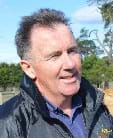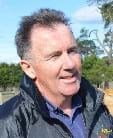APEN Blog
A blog encourages us to write in a different way to attract different audiences. Because it is relatively short, less formalised and is a self-contained piece, a blog enables us to experiment with sharing our information, our research, our opinions, a vignette, a review … The blog can include images, videos, slides and sound.
APEN encourages you to write a blog and /or provide feedback on someone else’s blog.
- Click on the blogs below
- Send your blog to info@apen.org.au
Keeping up to date
Extension is an ever evolving profession. It is important as extension professionals we take the time to continuously develop our knowledge, skills and practice.
To aid in this I seek out information from a number of sources. Some I currently use include:
- ACDC News – a regular update from the Agricultural Communications Documentation Centre at the University of Illinois (http://www.library.illinois.edu/funkaces/acdc)
- Better Evaluation (http://betterevaluation.org)
- Econnect Communication (http://www.econnect.com.au)
- Inventium (http://www.inventium.com.au)
- Journal of Extension (https://joe.org)
- The Right Mind International (http://www.therightmind.com.au)
All these sources produce a regular eNews newsletter. At the moment I have started reading the “Doing Real Research: a practical guide to social research” book by Eric Jensen and Charles Laurie as a direct result of an article in one of the recent ACDC News articles. It is a good read and a very practical reference for this important area of the extension profession.
There are a vast array of information sources around. But one of our challenges is to manage the volume of information that assails us each day. Recently I attended two meetings in Canberra hosted by the RIRDC in relation to their projects on extension in Australia. The meetings included three members of the APEN Management Committee (Rebecca Wallis, Warren Hunt and myself). It was very encouraging to hear the results of the project to date and give thought to how these can progress into future actions that benefit the extension profession and our clients. Of particular interest to me was the demonstration and discussion of the proposed Extension Community of Practice. This is very much in its formative stage but you can access some resources here at https://extensionhub.com.au/web/extension-practice. The APEN MC sees the value of such a Community of Practice and currently investigating how it can be progressed. Keep a watch for further updates.
Graham Harris
Vice-President (2017)
Federal Department of Agriculture and Water Resources - What do they do?
- Supporting agricultural communities
- Expanding agricultural, fisheries and forestry exports
- Sustaining natural resources for longer-term productive primary industries
- Improving water use efficiency and the health of rivers, communities, environmental assets and production systems
- Managing biosecurity and imported food risk
- Building an efficient and capable department
- Being a best practice regulator
To find the report go to:
Victorian Regional Coordinator (2016)
Water your landscape - not your roads!
Soil conversation is a topical issue in most of Australia, and here in northern South Australia it is no different. Through the Department of Environment and Natural Resources, Natural Resources SA Arid Lands have put together the ‘Water your landscape, not your roads: Best Practice Road and Track Maintenance’ DVD aimed at tackling this big issue.
This DVD combines practical on-ground strategies to maintain, in our case, pastoral country and keep it from being dehydrated.
So Why a DVD?
We were looking for something fresh and ‘outside the box’ in terms of departmental products. We have the usual factsheets and regional newsletter but we wanted something different. What hadn’t our landholders seen before? The answer was a DVD. Yes there had been similar produced before, but nothing that interviewed landholders and made them a part of the process and reflected their country and their issues.
The idea for the DVD came about because not all landholders could attend the advertised Soil Conservation workshops that were held throughout the region, but, the demand was still high for this information. So we had to sit down and think about how to get out our information to a wider audience. It wasn’t feasible to send our workshop contractor to over 200 pastoral properties in the region, we needed another way. The DVD presented the most convenient and cost effective choice.
So why not a Thumb Drive that’s what everyone else does?
For this we looked to our own habits. Because thumb drives are small they get lost, misplaced or take up residence at the bottom of your bag, or hide in a draw somewhere – not to mention that because they are handy storage facilities, information can be overwritten. This was not what we wanted. We needed something that was visually attractive, big enough that it can’t get lost and easy to watch. Not everyone in the SA Arid Lands community uses a computer to watch videos, but we knew our audience all had televisions and DVD players. This meant that the whole family could sit down and watch the DVD instead of huddling around a computer monitor.
The Development of the DVD
While making the DVD we kept our audience in mind and worked out the best way to connect with them. As with any work we produce whether it be factsheets, a Facebook post or a DVD we needed to know our audience and cater for all types of learners. We had a detailed script that provided the factually based information we wanted to share but it was filmed fairly informally and we allowed the workshop deliverer to be as natural as he wanted to be. This meant that the information wasn’t just dry and boring, but more fitting with the pastoral community.
We also provided real on property examples and interviewed landholders who had implemented soil conservation work on their property - to show what can be achieved. We interviewed landholders after the workshops so it was them who provided the feedback, recommendations and shared their learnings – not the department.
The primary focus of the DVD was the practical know how of maintaining roads and tracks. We filmed the machinery doing the work, visually instructing the watcher on what to do and then supporting that vision with text explanations and voice overs. To compliment this the DVD also has a Soil Conservation manual attached for landholders to print out themselves or refer to when needed.
So what was the end result?
After filming our videographer had over 100 hours of footage to edit down to just under an hour, we then added animations and finally the cover art tied it all together. If you would like a copy please contact me at Lisa.Stevens@sa.gov.au.
So did we hit the mark?
Copies of this DVD have gone out far and wide and to almost every state and territory in Australia and through our comprehensive communications plan we hope to keep on delivering this product to those that need it.

So far the feedback we’ve received from our own landholders is that it is one of the best things our Department has produced. Can’t get better feedback than that!
SA Regional Coordinator (2016)
2016 Churchill Fellowship opportunity now available
The 2016 Churchill Fellowship call is now open for applications. The Churchill Fellowship offers Australians the opportunity to travel the world to conduct valuable research in their field and bring back knowledge, experience, ideas and innovation for the betterment of their industry, community and Australia.
Fellowships are awarded for the purpose of pursuing an overseas investigative project of a kind that is not readily available in Australia. In 2016 more than 100 Fellowships (including more than 30 Sponsored Fellowships) are expected to be awarded. The duration of a Churchill Fellowship is typically four to eight weeks, however, slightly shorter or longer itineraries can be considered if justified. The value if each Fellowship varies, however, the average award is worth well in excess of $25,000. The funds cover airfares, a variable allowance for travel in-country, assistance with overseas living expenses and possible assistance with the cost of conferences, training or lesson fees that relate to your project.
Applications will be accepted until the 15 May 2016. All applications will be assessed by a panel or committee, and a shortlist of applicants selected for interview. These interviews are conducted in each State and Territory, and nominations from the interviews are submitted to the Board of The Winston Churchill Memorial Trust for final selection in November 2016.
As a recipient of the 2004 Swire Group Churchill Fellowship I can thoroughly recommended the excellent opportunity the awarding of a Churchill Fellowship provides you with. It enables you to travel widely and research an area of interest which is significant for Australia, and to expand your international networks. I’d encourage all members of APEN to give serious consideration to applying for a Churchill Fellowship.
Full details of the Churchill Fellowship, and proposed Information Sessions across Australia, can be found at the Winston Churchill Memorial Trust website, at www.churchilltrust.com.au.
Reflections on six years as an APEN MC rep
About 7 years ago I was tapped on the shoulder by a fellow APEN member, Frank Vanclay and asked if I would consider taking on the role of the Tasmanian Regional Coordinator which was vacant at the time. I had been a member of APEN for 5 years, had been to an APEN conference once before although didn’t really consider myself to be a very ‘active’ APEN member. I remember thinking about it briefly before saying no and used the now very lame excuse that I was about to get married and was ‘busy planning my wedding’. I now look back on that excuse and laugh that I thought I was busy then.... These days I am a mother to a 2 and 4 year old, run my own consulting business and undertake a voluntary role with a local charity organisation... now I truly know the meaning of busy.
Twelve months later the Tasmanian APEN position was still vacant. After attending an APEN Roadshow event in Hobart, I was surprised that only 2 of the 20 attendees were APEN members. I started to think more about the Regional Coordinator role and that perhaps I should put my hand up to take it on. My biggest concern was that I wasn’t sure what I would have to offer the APEN Management Committee.... was I experienced enough? And would my employer be supportive of me taking on this voluntary role? (at the time I worked for a private organisation, who’s core role was not considered ‘extension’ and they knew little of APEN).
Eventually I did put my hand up to take on the role of Tasmanian Regional Coordinator, a role that I would undertake for 6 years.
The changing nature of extension and APEN MC
At my first Management Committee (MC) meeting (which were then held via teleconference) I realised I was the only representative that worked in the private sector undertaking extension. The committee were pleased that I would bring a different view point from the new emerging trend for private extension delivery. Tasmania had made the transition from public sector extension delivery much earlier than other states and the private delivery model was then much more mainstream. For those in other states they were facing a new paradigm of diverging government investment in extension services, and working out what this meant for the future of extension.
Six years on the tide has turned and the makeup of the APEN management committee is a diverse mix of private consultants, NRM, university and government sector representatives. Having attended the recent APEN conference in Adelaide I reflected at the diverse mix of employment which now constitutes ‘extension professionals’ in the conference delegates, gone the days when APEN was a network of government employees.
So what did I gain from my six years as an APEN rep?
Firstly it was a wonderful networking experience. I have met and got to know great people though my APEN role. Building relationships with the other APEN MC reps has been a definite highlight. This was initially ‘over the phone’ or via web conference as part of the monthly MC meetings and then at face to face meetings which were held once a year. As a management committee we always came away with a great sense of team and drive as an MC after meeting face to face.
I have gained skills in governance and representation and have my first experience of being a member of a management committee (board). I think it is wonderful that APEN offers this opportunity to its members through the regional representation model which enables those without previous experience in these fields to develop them.
During my time on the MC we reviewed and significantly updated the APEN strategic plan at our first ever Face to face MC meeting. I helped to facilitate this process and then prepare the final document. It was a great achievement and as a MC we were very proud of our new plan that helped to drive our focus and role as a Management committee.
I have had the opportunity to represent APEN and present on the benefits of the APEN network at national events including a National Horticulture Industry Development forum and at the Ag Institute AGM.
One of my last formal roles on the APEN MC was to be part of the selection panel for the APEN awards for Excellence. I was in awe of the skill set and experience of the nominees and felt truly privileged to be one of those helping to select who the awards went to. Even better was seeing the humbled surprise on the nominees faces when I had the honour to present the awards at the conference dinner. Three very deserving winners, one young professional and two experienced professionals, who have helped to shape many young extension professionals early in the careers.
Getting others involved in APEN
I joined APEN in 2003 when my supervisor at Vic DPI told me that I should. I was lucky enough to be part of the DPI graduate program and have great skilled and experienced extension officers to mentor me in my early extension career. I attended the APEN conference in Hobart that year and to be honest much of the content went over my head, but I still considered it to be a great experience. Now that I operate my own consulting business as a sole trader I see the benefit of APEN even more as an opportunity to network and share with other likeminded professionals. It is terrific to be amongst a group of people who understand what it is that I do, what the term extension means and to be challenged by new ideas and ways of operating.
I was fortunate that I had the advice to join APEN from my supervisor and given the changed landscape of extension service delivery I worry that those traditional points of introduction to APEN for young extension professionals may be reduced. I think we all as APEN members, who value this great organisation and network need to shout it from the rooftops and let others know about APEN, especially to those new to the profession.
Locally in Tasmania it has been great to see the Tasmanian APEN membership grow in numbers over the last 6 years, as together with the Cluster Coordinator Aysha Fleming, we organised local APEN events including APEN roadshows, formal training workshops, informal networking events and promoted APEN webinars. Local events are a great way to demonstrate the value of APEN and to encourage people to get on board.
I am thrilled but also saddened to hand on my APEN role to the new Tasmanian Regional Coordinator Donna Lucas and wish her and new Tasmanian Cluster Coordinator Tony Butler all the best for the new APEN roles. The Tassie members will benefit from their new enthusiasm and ideas and it is great that Donna and Tony now have the chance to take on the opportunities that being an APEN representative has brought me. I will really miss being part of the APEN MC, it has been a wonderful experience.
So for anyone out there who is considering taking on an APEN role... DO IT! or if you ever get tapped on the shoulder and asked to consider to taking on a role with APEN... SAY YES! You won’t regret it.
Sophie Folder (Past APEN Tasmanian Regional Coordinator 2009-2015)
Agricultural Competitiveness White Paper
Paraphrased by Mike Weise, August 2015
Chapter 4 Farming Smarter
Australia’s unique partnership between industry and Government for agricultural research and development has provided us with one of the world’s strongest rural research, development and extension (RD&E) systems. Together, the Government and industry are expected to provide around $5.5 billion over the next 10 years through the rural Research and Development Corporation (RDC) system. The system provides an average return of over $10 for every dollar invested (CRRDCC 2010).
The issues facing agriculture often go beyond single commodities and require collaboration, cross-sectoral and transformational research, and more extension and adoption. The Government’s $100 million Rural R&D for Profit Programme enables such solutions, but it expires in 2017–18. The Government will invest a further $100 million to continue the programme between 2018–19 and 2021–22.
The Government is also updating the rural RD&E priorities to better reflect industry and community needs. The new priorities will include a stronger focus on advanced technology; biosecurity; soil, water and management of natural resources; and the adoption of R&D.
We will continue to improve the operation of the RDCs to deliver more efficient, targeted and transparent RD&E outcomes for rural industries.
Skilled labour is vital to ensure agriculture has the workforce needed to remain internationally competitive. The Government is committed to ensuring all Australian industries, including agriculture, have access to a skilled and flexible workforce. In higher education, and vocational education and training (VET), the Government has set out a significant reform agenda that will lift quality, ensure training leads to jobs and improve the status of the VET system.
The Government is also investing $13.8 million to strengthen farmer awareness and knowledge about innovative business models, such as cooperatives, under a two-year pilot programme to commence in 2015–16.
Farmers are stewards of 53 per cent of Australia’s landmass (ABS 2015b) and are the front line natural resource managers in Australia. From 2015–16 the Government is providing around
• $1 billion over four years for the National Landcare Programme and
• $700 million over four years for the Green Army to deliver practical projects for environmental benefit and provide training in conservation management
• $50 million to manage established pest animals and weeds.
Government is adopting a three-pronged approach to building stronger RD&E
1. Investing in the right RD&E by setting the right priorities
2. Addressing the gaps in the system through more funding for collaborative research and adoption
3. Improving the efficiency of the system by reducing administrative costs and improving governance.
The existing agricultural RD&E system has a strong advantage in focussing on the needs of levy payers in each agricultural industry.
Important statement for Extension
Productivity growth in agriculture has slowed over the past 15 to 20 years (Gray, Oss-Emer & Sheng 2014). Productivity improvements in agriculture depend on effective uptake of R&D (PC 2011; Sheng et al. 2011). State and Territory governments, who traditionally invested strongly in RD&E, have reduced their efforts. The private sector is stepping into extension services but not consistently across all sectors and regions.
The Government considers that the RDCs need to work with other extension providers to facilitate farmers’ adoption of R&D. Roles and responsibilities will vary depending on the circumstances in different industries, but RDCs must demonstrate that farmers will have a pathway to adoption for the R&D they fund. Future productivity gains are most likely to come from better extension efforts, increased efficiency in the RD&E system, building human capital through labour and skills, and reducing regulatory burden (Gray, Oss-Emer & Sheng 2014). The Government is focused on addressing these gaps by improving cross-sector and transformational research, collaboration (both among RDCs and between RDCs and other rural research providers) and extension services to facilitate the adoption of innovation by farmers.
Mike Weise, Victorian Regional Coordinator
European Seminar on Extension and Education 2015
At the end of April/start of May this year I had the opportunity to participate in the European Seminar on Extension and Education (ESEE) at Wageningen University in The Netherlands. The ESEE was being held concurrently with the 2015 Annual Conference of the Association for International Agricultural Extension and Education (AIAEE). There was a small contingent of New Zealanders and Australians present – waving the flags very well – including giving presentations that were well received.
This was a significant event; having European-based and American-based extensionists in the same room. The context for extension in Europe is much more like New Zealand in that there are few government funded extensionists, a focus on industry led extension and development and a lot of the work undertaken in the extension field, both theory and development, done by research providers (such as universities) or private companies. In America, extension theory and practice is located within the Land Grant University system, and so mandated as part of the role of government.
One of the keynote speakers was Dr Marianne Cerf from INRA France. She has been involved in a large project exploring the Agricultural Knowledge and Innovation Systems (AKIS) across Europe. You can explore this project online here: http://www.proakis.eu/ Dr Cerf reflected on the need for discussion spaces amongst extensionists to reflect on their experiences. The main idea of her talk was to improve the ‘back office’ of extension. This is the space where monitoring, training, developing reference material and knowledge occurs; where extensionists have the opportunity to reflect on activities, particularly as the diversity of situations in which they work increases. If you are interested in this concept of the back office, it’s worth having a read of Labarthe & Laurent (2013) as well as the publications on the PROAKIS website.
The conference had a huge range of concurrent sessions, a poster session and lots of time for discussion and networking. Highlights from the concurrent sessions were mostly from this part of the world! They included Neil Webster from Dairy Australia talking about the importance of brokers, Warwick Waters (programme manager for CottonInfo) talking about moving from novice to expert practitioners and Dara Bloom from North Carolina State University, speaking about legitimacy.
The final part of the conference was a farm tour. We visited three organic farms, and one biodynamic farm. We asked the farmers we visited about where they sourced or found information on organic or biodynamic farming. Other farmers were the main source of information. This was sometimes in the form of an organised group. The vet was also a key source of day to day farming advice. I was left with some questions from the farm tour experience, as I reflected on the extension learning from the conference, and thinking about the reality of extension on the ground. Given feedback from the farmers we visited that the most valuable source of information is other farmers, not specialists at Wageningen University just a short drive away, how does extension reflect, learn and change for new contexts and environments? Maybe the key questions is how is your back office?
On a side note, for those of you who may remember a small textbook from your study called Agricultural Extension… Professor van den Ban, the author of that text (with Stuart Hawkins), was at the ESEE conference. He is retired now but still takes an interest in developments in extension.
Reference: Labarthe, P. and Laurent, C. (2013).The Importance of the Back-office for Farm Advisory Services .Euro Choices 12(1), 21-26.
Denise Bewsell, New Zealand and Overseas Regional Coordinator
APEN has a new blog
Welcome to the new APEN blog.
Previously we had a President’s blog but this has been changed so that all members of the Management Committee can contribute to share the workload. Anyone interested in previous blog articles can find them in the Library under Resources on the website.
If you have any issues you wish discussed on the blog please contact your Regional Coordinator.
Currently we are calling the blog - APEN blog - not very exciting I know, but we have been short on ideas. If you think you may have a good name for the blog please send it to Roe Currie.
Although the Management Committee will be preparing the items for the blog - this is your blog! Contact your Regional Coordinator with ideas and please consider participating by including a comment with an article so we can generate a discussion about the issues raised. What others say can be just as valuable as the item itself.
Happy blogging!
Jeanette Long, President (2015)








